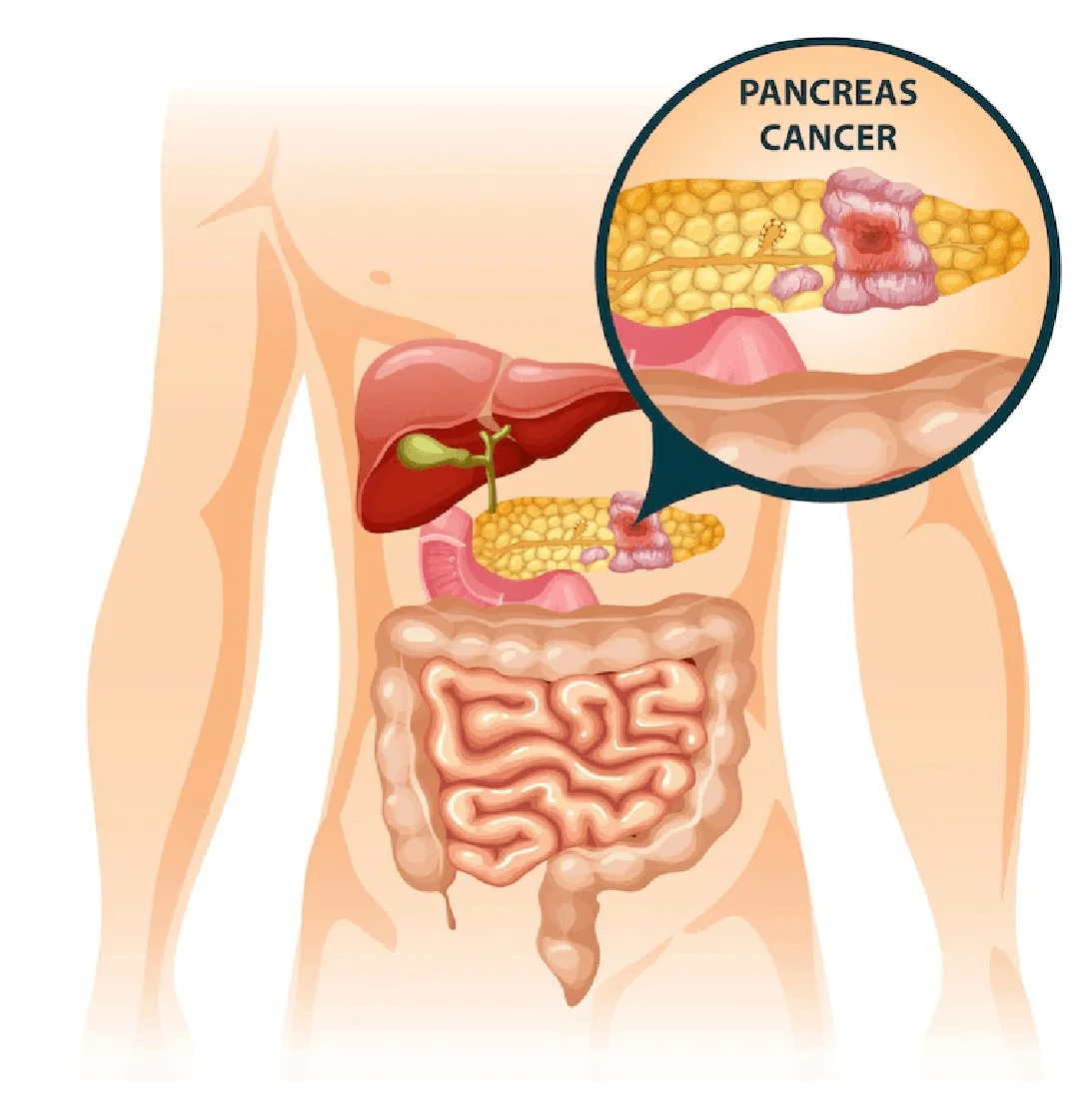
Department of Gastroenterology
Welcome To Gangasheel Hospital
What is Pancreatic Cancer ?
Pancreatic cancer begins in the tissue of the pancreas, an abdominal organ behind the lower stomach. The pancreas releases enzymes that aid digestion and produces hormones that help control blood sugar levels.
Various types of growth can occur in the pancreas, including cancerous and benign tumors. The most common type of cancer that arises in the pancreas begins in the cells that line the ducts that carry digestive enzymes from the pancreas (pancreatic ductal adenocarcinoma).
Pancreatic cancer is rarely recognized in its early stages, when it is most curable. This is because they often do not cause symptoms until they have spread to other organs.
Treatment options for pancreatic cancer are selected based on how far the cancer has spread. Options include surgery, chemotherapy, radiation therapy, or a combination of these.
The signs and symptoms of pancreatic cancer often do not appear until the cancer is in an advanced stage.
- Abdominal pain radiating to the back
- Poor appetite or unintended weight loss
- Yellowing of the skin and whites of the eyes (jaundice)
- Pale stools
- Dark urine
- Itchy skin
- Newly diagnosed or pre-existing diabetes
- Blood clot
- Fatigue
The cause of pancreatic cancer is not known. Doctors have identified several factors that may increase the risk of this type of cancer, including smoking and certain inherited genetic mutations.
You can reduce your risk of pancreatic cancer by:
- Quitting smoking. If you smoke, try to quit. Talk to your doctor about strategies that can help you quit, such as support groups, medications, and nicotine replacement therapy. If you don't smoke, don't start.
- Maintain a healthy weight. If you're at a healthy weight, try to maintain it. If you need to lose weight, aim for slow and steady weight loss - 0.5 to 1 kilogram per week. Lose weight by combining daily exercise with a diet that includes more and smaller portions of vegetables, fruits, and whole grains.
- Choose a healthy diet. A diet rich in colorful fruits and vegetables and whole grains can help reduce the risk of cancer.
How is pancreatic cancer treated?
Treatment of pancreatic cancer depends, among other things, on the location of the tumor, stage, health status, and whether the cancer has spread beyond the pancreas.
Treatment options include:
- Surgical resection:
Removal of the cancerous part of the pancreas (excision). Lymph nodes near the pancreas may also be removed. Surgery to remove the pancreas or part of the pancreas is called pancreatectomy. If the tumor is in the head of the pancreas (the widest part of the pancreas near the small intestine), your doctor may recommend Whipple surgery. In this surgical procedure, the head of the pancreas, duodenum (first part of the small intestine), gallbladder, part of the bile duct, and nearby lymph nodes are removed. - Radiation therapy:
High-speed energy used to kill cancer cells. - Chemotherapy:
This method uses drugs to kill cancer cells. - Immunotherapy:
A treatment that helps the body fight cancer. Immunotherapy has had little effect on pancreatic cancer, but about 1% of people with pancreatic cancer and certain genetic conditions may benefit. Target specific genes or proteins to help grow. Genetic testing is usually used to determine if targeted therapy is right for you. - Clinical Trials:
Talk to your doctor about whether participating in a clinical trial is an option.
Yes, Pancreatic Cancer treatment is available in Bareilly at Gangasheel Hospital by the team of expert Gastroenterologists in the city.
